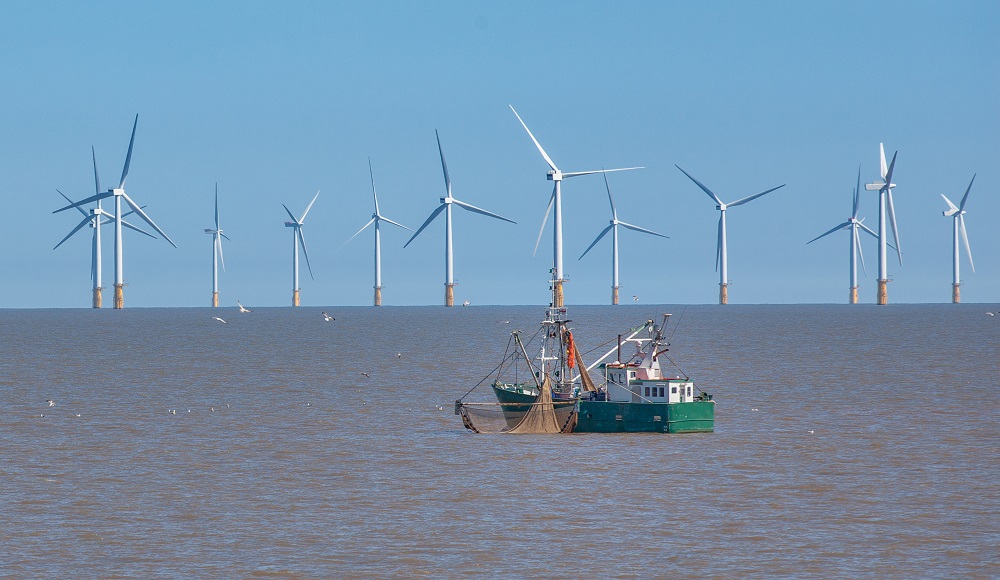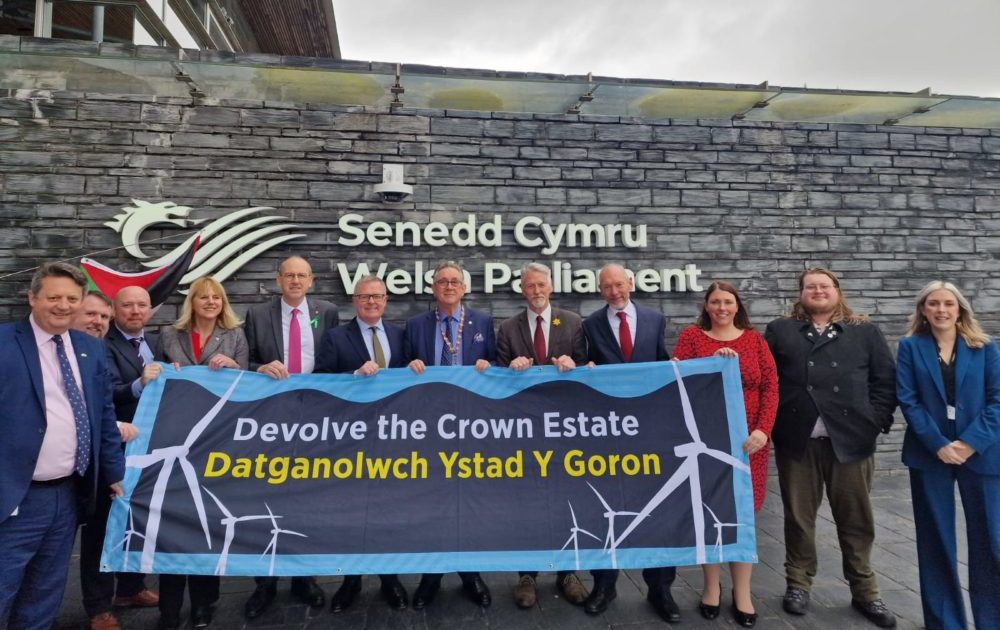Why it’s time to devolve the crown estate and put Wales on a par with Scotland

Stephen Clear, Lecturer in Constitutional and Administrative Law, and Public Procurement, Bangor University
Since the general election, there has been much speculation as to what the new UK Labour government may mean for Wales, given the same party is now in charge in both Cardiff and London.
Among these debates is the question of whether Westminster will devolve the crown estate. This is a collection of property, rights and interest, owned by his majesty “in right of the crown”. This should not be confused with the crown estate working for the king. Instead, it means that, while the monarch is the legal owner, it is not the king’s private property and cannot be sold by the monarch. Revenues from the estate do not belong to the king, they go to the Treasury.
Devolving the crown estate would bring Wales into line with Scotland. Welsh Labour has consistently claimed it has a firm commitment to devolving it. But the new UK government recently confirmed it has not had discussions with the Welsh government about devolving the crown estate to Wales.
George III
The estate’s assets are managed by commissioners and boards under the Crown Estate Act 1961. It is a unique business with a history dating back to 1760.
That’s when George III surrendered crown lands to parliament for an annual payment, with the estate’s profits later going to the Treasury. Since 2011, the estate’s profit has also been used by the UK government to set the funding for the monarch, under the Sovereign Grant Act.
Broadly speaking, the crown estate prioritises environmental projects. This includes cumulative offshore wind projects with capacity to generate enough clean energy to generate around 11.8GW. The estate has also committed £10 million for the planting of 1,000 acres of new woodland and 200 miles of hedgerows.
In the 2023-24 financial year, the estate announced a record £1.1 billion net revenue profit. This is £658.1 million higher than the previous year, with the uplift mostly attributable to offshore wind leasing.
The crown estate in Scotland
Management of the crown estate was devolved to Scotland in 2017, which means that the revenue is returned to Edinburgh rather than Westminster. The estate includes the leasing of the seabed up to 12 nautical miles from the coast, 37,000 hectares of rural land, rights to the majority of naturally occurring gold and silver, and around half of Scotland’s foreshore. This includes 5,800 licensed moorings, 750 aquaculture sites and rights to salmon fishing.
According to its latest annual report at the end of 2023, the Scottish crown estate had generated £103.6 million for the Scottish government’s purse. The value of the Scottish estate also rose from £568.2 million to £653.1 million in the last year through its various initiatives and investments.
As a public corporation, the estate in Scotland is accountable to Scottish government ministers and the Scottish parliament. Crucially, the Scottish Crown Estate Act 2019 provides that the estate must act in a way that is likely to further sustainable development in Scotland as well as contribute to the promotion, or the improvement of regeneration, social wellbeing and economic wellbeing.
In respect of Wales, it is estimated that the estate owns 65% of the nation’s foreshore and riverbeds, and more than 50,000 acres of land.
Petition
Various campaign groups and politicians have called for the devolution of the crown estate for several years, so that Wales is put on par with Scotland. In early 2022, a petition was launched calling for it to be devolved.
At the time, the then Conservative secretary of state for Wales Simon Hart told parliament that there was no “public interest or appetite” for reform, and added that it was a case of “if it ain’t broke, don’t fix it”.
In 2023, a YouGov poll found that a majority of Welsh people supported devolving the estate to Wales. And in January this year, a campaign was launched by Plaid Cymru MP Liz Saville Roberts, then Labour MP Beth Winter and the Welsh housing justice charter, Siarter Cartrefi, to focus on this issue. It was endorsed by actor and activist Michael Sheen.
The campaign argues that Wales should benefit directly from the profits of renewable energy, given its role in initiatives like offshore wind. It argues that this money could be used to address the poverty and inequality in communities across Wales.
Given Welsh Labour’s policy commitment, and the change in UK government, one may have expected the two to be moving closer to serious conversations surrounding the future of a crown estate in Wales.

Yet, Labour’s new financial secretary to the Treasury in Westminster, Lord Livermore, said at the end of July: “Introducing a new entity would fragment the market, complicate existing processes, and likely delay further development offshore, undermining investment in Welsh waters.”
For decades, devolution in Wales has trailed behind Scotland in respect of the delegated responsibility the nation enjoys. And crown estate devolution appears to be on the back burner for now, possibly partly fuelled by the UK’s present financial situation. It will be interesting to see whether there is any push back from Welsh Labour.
However, considering the work of the estate in Scotland, it is difficult to see why Wales should not be afforded the same opportunities, particularly at a time when the crown estate is announcing record net profits, and economic inequality continues in Wales.
This article was first published on The Conversation
![]()
Support our Nation today
For the price of a cup of coffee a month you can help us create an independent, not-for-profit, national news service for the people of Wales, by the people of Wales.






Stop asking permission and just take it back. It’s already ours to begin with.
With independence – we could do exactly that. Currently, we are just backing our heads against a brick wall – pointless.
Both situations require that we bring Westminster to the table. If we cant bring them to the table over Crown Estates we won’t be able to bring them to the table over Independence.
Luckily we have YesCymru and Plaid Cymru who I’m sure are tireless trying to work how we do that!
I think there is a good case to keep the Crown Estate in England and Wales together but grant a proportion of the profits every year after the Sovereign Grant to fund projects in Wales. This could be in proportion to the income from the Welsh lands and assets. This must not lead to trimming of the Treasury Allocation to Wales.
The Crown Estate has only made £17 million since it was devolved.
Scotland sold its offshore wind farm leases at far less than the UK did
It belongs to Wales & its people
Crown estate, HS2 Barnett equivalent, constitutional consultation, funding crisis in local authorities, devolution of media, justice and so on … a host of areas where you’d think that Labour’s much trumpeted claims over a better working relationship between the Senedd and Westminster would bear some much needed fruit. OR WAS IT ALL JUST HYPE?